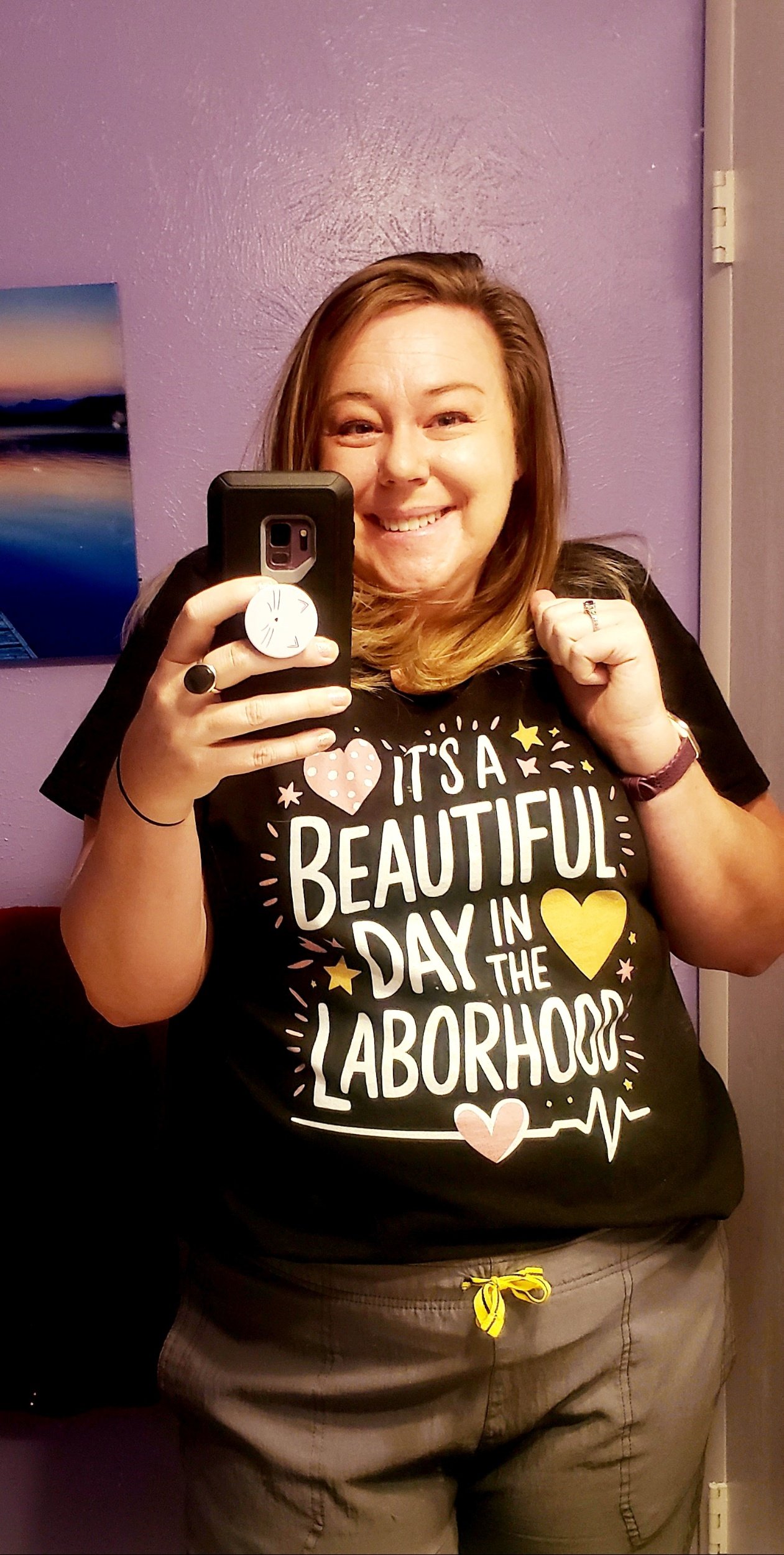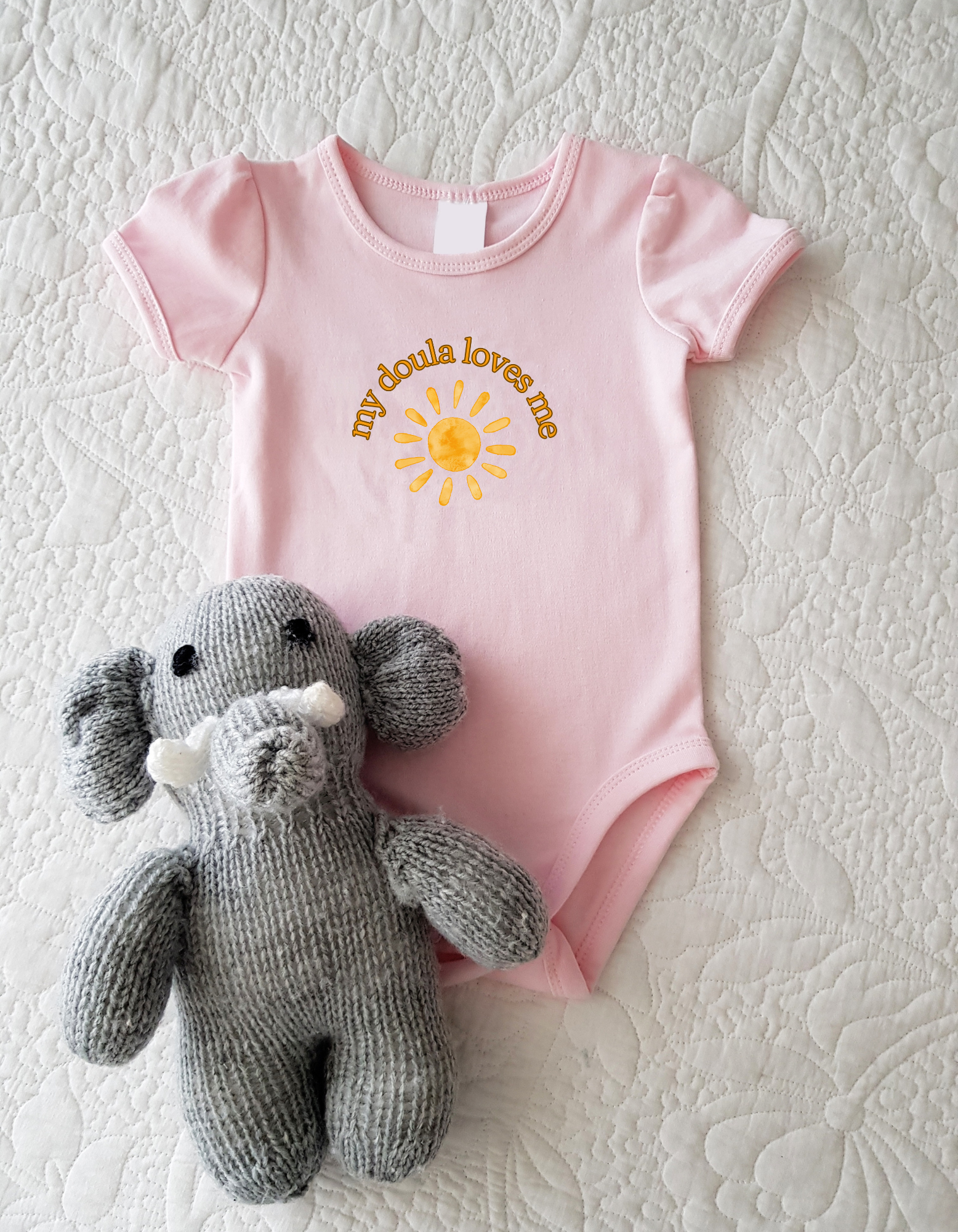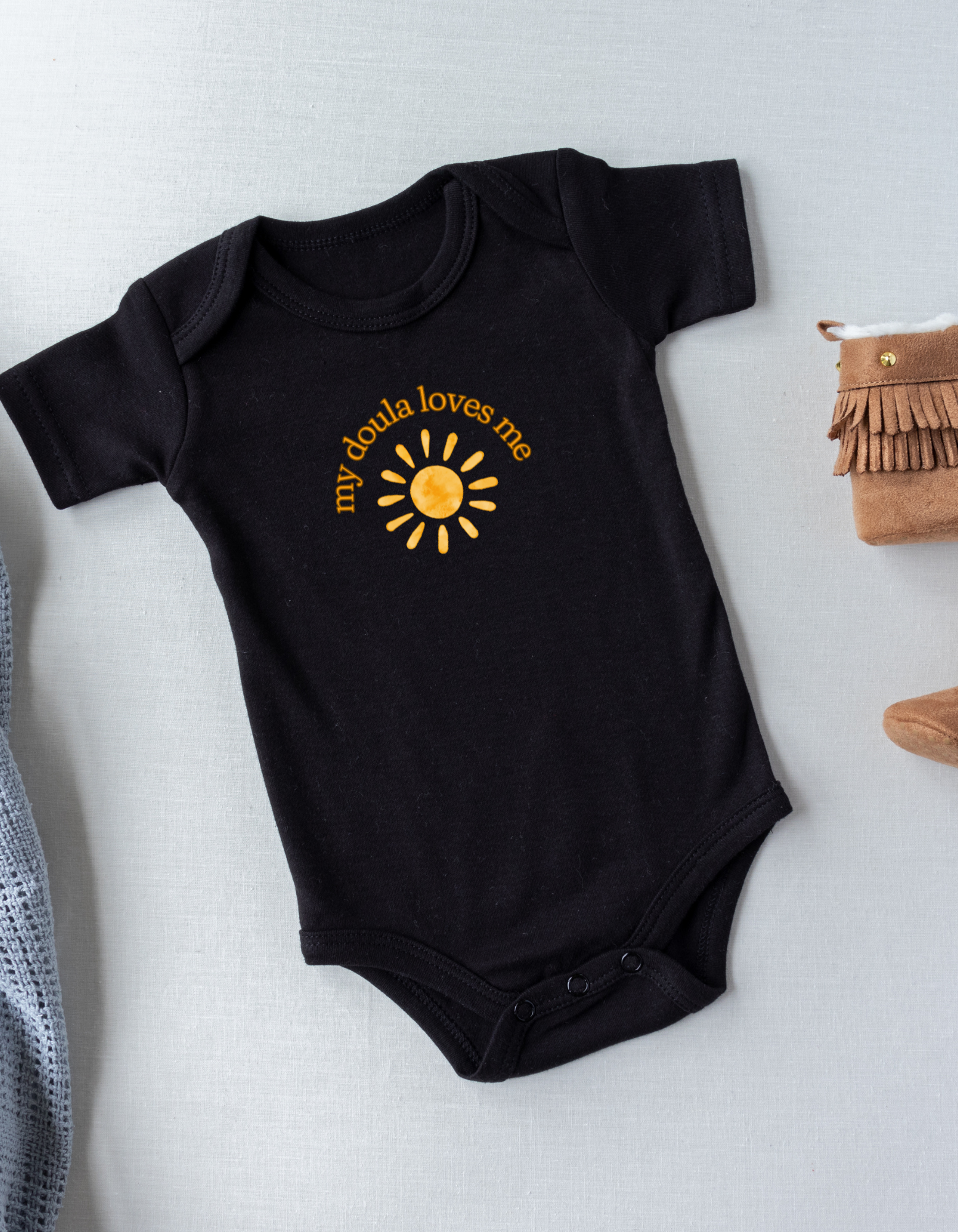
BLOG Posts
Does This Honor My Nervous System… or Betray It?
“Are you a people-pleaser, a chronic self-betrayer, someone who learned early that other people’s comfort mattered more than your own? I’m practicing a simple question that’s changing how I move through life: Does this honor my nervous system… or betray it? Here’s what I’ve learned.”
In my work as a doula, I’ve noticed that many of us spend our lives prioritizing other people’s comfort over our own. I see it in birth rooms, in postpartum homes, and in everyday life. I want to share something I’ve been practicing lately—something that helps me honor my own nervous system.
Are you a people-pleaser?
A chronic self-betrayer?
Someone who learned early that other people’s comfort mattered more than your own?
Yes?
Oh, hey… me too.
Honoring Myself in the Small Moments
Before I say yes to things.
Before I buy things.
Before I consume things.
Before I push myself to be someone I’m not that day…
I pause and ask:
Does this honor my nervous system… or does it betray it?
Not forever.
Just right now.
Sometimes that looks like declining an invitation I “should” be able to handle.
Sometimes it looks like not going to the event even though I already RSVP’d with a yes.
Or not having the conversation.
Or not buying the thing with the great marketing that promised to make me feel better.
Sometimes it looks like closing an app.
Turning off the TV.
Choosing quieter music.
Eating something that actually feels grounding instead of punishing.
Listening to My Body With People
I’ve started noticing this with people, too.
There are people I love deeply who still make my body feel anxious.
And others who don’t say much at all, but my shoulders drop the moment I’m near them.
My body always knows first.
Even getting dressed has become a question:
Does my body feel supported in this… or restricted?
I spent a lot of years choosing what looked acceptable instead of what felt safe.
This is exactly what I support in my work as a doula: noticing what feels safe for your body, honoring it, and making choices from that place rather than pressure, expectation, or obligation. Whether it’s during birth, postpartum, or everyday life, this practice is about reclaiming trust in yourself and your body.
Morning Rituals Matter
Mornings matter more than I realized.
Before my feet hit the floor.
Before my hands grab my phone.
I wake up to a gradual soft light instead of a jarring alarm.
I write down my dreams.
I breathe. Set intentions. Meditate.
I mindfully remember I’m in a body.
That’s not discipline.
That’s care.
Reflection at the End of the Day
At the end of the day, I look back… gently… and reflect:
Where did I honor my nervous system today?
Where didn’t I?
Not to shame myself.
I don’t do that anymore.
Shame never made me safer.
I just learn.
And I try again tomorrow.
A Message for You
If this is you, I want you to hear this clearly:
It is okay to choose your nervous system first.
Before expectations.
Before appearances.
Before being liked.
Before being “easy.”
Choosing yourself isn’t selfish.
It’s how safety is rebuilt.
And you are allowed to begin… right here. Right now.
Notice where your body feels safe today—and where it doesn’t.
You don’t have to change everything at once.
Safety first. Not forever. Just right now.
In my doula work, I witness the power of these practices every day. Honoring your nervous system—listening to your body first—is not just for birth or postpartum; it’s a blueprint for living more safely, gently, and fully in every moment.
Regulation Is Not Taught — It’s Felt
Regulation isn’t taught — it’s felt. A nervous system–first perspective on safety, co-regulation, and embodied support in pregnancy, birth, and postpartum.
Why nervous system safety can’t be forced (and why that matters in pregnancy, birth, and postpartum)
There’s a quiet misunderstanding in a lot of healing, parenting, and birth spaces:
That if we just explain things well enough — teach the right technique, say the right words, follow the right steps — calm and safety will follow.
But the nervous system doesn’t work that way.
Regulation is not something we do to another person.
It’s something we embody — and invite.
The nervous system doesn’t learn through instruction
When a body is overwhelmed, anxious, or in survival mode, it isn’t listening for advice. It’s scanning for safety.
Tone. Pace. Facial expression. Breath. Presence.
These are the languages the nervous system understands.
That’s why:
You can’t logic someone out of fear
You can’t rush someone into calm
You can’t shame a body into feeling safe
And it’s why regulation spreads not through correction, but through co-regulation.
One regulated nervous system gives another nervous system permission to soften.
Not because it tries — but because it is.
Embodiment over hierarchy
In nervous system work, there is no:
“More regulated”
“Better birth”
“Doing it right
Every nervous system finds safety differently.
Some bodies soften through stillness.
Some through movement.
Some through structure.
Some through silence.
Some through touch.
Some through space.
There is no single doorway to regulation.
And when we stop ranking nervous systems — stop deciding whose response is “better” or “healthier” — shame begins to dissolve.
What’s left is curiosity.
---
What this means in pregnancy and birth
Pregnancy, birth, and postpartum are not just physical events. They are nervous system events.
A birthing person doesn’t need to be calm to be supported.
A laboring body doesn’t need to be fixed to be safe.
A crying baby isn’t failing — they’re communicating.
Support rooted in nervous system safety looks like:
Slowing the room down
Matching pace instead of forcing it
Letting emotion move without trying to stop it
Staying present without taking over
It’s not about doing more.
It’s about doing things differently.
---
Why I focus on regulating myself first
In my work as a birth and postpartum doula, I don’t try to regulate other people’s nervous systems.
I regulate mine.
My breath.
My tone.
My movements.
My energy in the room.
Because nervous systems communicate long before words are spoken.
When I stay grounded, others don’t feel instructed — they feel safe.
And safety is what allows bodies to do what they already know how to do.
---
Regulation is permission, not pressure
True nervous system support isn’t about waking anyone up, fixing anything, or pushing for change.
It’s about creating enough safety that change becomes possible.
Not because it’s demanded — but because it’s invited.
When we stop trying to control outcomes, nervous systems soften.
When we stop imposing calm, calm has room to arrive.
---
The heart of my work💜
This is the philosophy behind how I doula.
It’s not just what you do — it’s how you do it.
Support isn’t a checklist.
It’s presence.
And when presence is regulated, responsive, and grounded, it echoes far beyond the moment itself.
Because the nervous system remembers how it felt to be safe.
And that memory matters.
---
Beth Brooks
Nervous system–first birth & postpartum doula
The Birth-Signal: A Doula’s Call to Action
✨🦸♀️ Ever wondered what it’s really like to be a doula on call?
Let’s just say… forget the Bat-Signal — when the birth-signal shines, this doula springs into action.
I turned the whole idea into a fun, comic-style story on the blog.
By Beth, Life On Purpose Doulas
Batman has his Bat-Signal.
But us doulas? We get the Birth-Signal.
Well… welcome to a doula’s life.
If you know the old-school Batman show, you’ll remember the dramatic moment when the Bat-Signal lit up the night sky, calling the Caped Crusader into action.
We have our own version of that glowing sky beacon.
I call it “The Birth-Signal”
It doesn’t involve a bat, a cape, or a fancy gadget.
But it does mean something big is about to happen.
🌙 A Quiet Night in Littleton…
It always starts on a calm night. The dishes are done, the kids are asleep, and I’m finally tucked into bed, hair piled on my pillow, absolutely not looking like a superhero of any kind.
Then, suddenly…
A glow.
A tug in the universe.
A silent baby whisper that says, “Hey… doula lady… it’s time.”
In my mind, it becomes a giant golden signal glowing in the sky… the birth-signal… swirling with the shape of a baby ready to make their grand earthside debut.
My eyes pop open, and even though it’s dark, even though I was cozy, even though it might be 2 a.m., I smile.
Because this is the moment I’m here for.
🦸♀️ The Doula Springs Into Action
Phone buzzes.
Contractions begin.
A family needs support.
This doula?
She moves.
It’s not dramatic on the outside — no cape flying in the wind, no theme music — but inside, something heroic activates.
I swing my legs out of bed, grab my birth bag (yes, it’s always packed), slip on shoes, and head for the door.
Across town, my client — a beautiful pregnant mama — is stepping outside her own front door, guided by the same symbolic “signal.”
We are both heading toward the same moment.
The same birth.
The same miracle.
And as I start my car, I can’t help but think:
“Forget the Bat-Signal — when the birth-signal shines, this doula springs into action.”
❤️ The Real-Life Superhero Work
Doula work isn’t loud or flashy.
It’s quiet strength.
It’s steady presence.
It’s supporting people through one of the most powerful transitions of their lives.
Sometimes it’s holding a hand.
Sometimes it’s suggesting a position that changes everything.
Sometimes it’s whispering encouragement at just the right moment.
Sometimes it’s being the calm in a room full of intensity.
This work?
It’s an honor every single time.
And yes — sometimes it feels just a little bit magical, like I really was called by a glowing birth-signal in the sky.
✨ So What Exactly Is the Birth-Signal?
It’s the metaphor I use for that moment when a family needs me — whether that’s early labor, active labor, or the moment they say, “Okay, let’s do this. Come now.”
It’s that sacred invitation into someone’s transformation.
It’s trust.
It’s timing.
It’s purpose.
And for me, it’s joy — every single time.
📣 Calling All Pregnant Families
If you’re expecting and you want a doula who treats your birth like a heroic journey (with you as the star of the story), I’d love to support you.
Birth is powerful.
You deserve to feel supported, informed, and held through all of it.
And whenever your little one decides to send up that birth-signal…
I’ll be there.
Beth the Birthworker excitedly gets the call… The Birth-Signal… and she is ready to go bring another soul earthside
Made by a doula, for doulas💜
Hey lovely doulas 💜
I’ve been on the hunt for a sweet, meaningful gift to bring to my families… and honestly, I couldn’t find anything out there that felt just right. So I ended up creating my own “My Doula Loves Me” newborn merch, and I wanted to share it here in case anyone else has been looking for something similar.
I designed 3 different styles (an elephant, a kitty, and a sunshine), all super soft and simple. There are various color options for both the onesies and the hats (they aren’t sold as a set, so you can mix and match however you like). Each piece is around $25, so it’s an easy, meaningful gift to keep on hand for client babies.
This collection was created by a doula, for doulas—and it means so much to support one another as small, heart-led businesses. 💜 If you want to take a peek, my shop is here:
👉 https://lifeonpurposeent.etsy.com
I hope you and your families love them as much as mine do!
How Understanding Your Energy Helps You Make Decisions
Life is full of decisions. An energy signature reading can help you.
Life is full of decisions — some small, some life-changing. And yet, making choices can feel overwhelming or confusing, especially when your mind is full of doubt or outside influences. Your energy signature can act as a guide, helping you navigate decisions with clarity and confidence.
Why Decisions Can Feel Hard
When you’re out of alignment with your energy, decision-making can feel heavy, stressful, or uncertain. You may find yourself second-guessing, seeking external validation, or repeating past choices that didn’t serve you.
How an Energy Signature Reading Helps
Aaron’s Energy Signature Reading provides insight into your unique energetic blueprint. By understanding your natural strengths, challenges, and preferences, you can:
Recognize the choices that align with your true self.
Understand the options that will energize and empower you, rather than drain you.
Gain clarity when navigating major life transitions like career changes, moves, or personal growth decisions.
Trust your intuition and inner guidance more fully.
The Outcome
Knowing your energy signature transforms how you approach decisions. Instead of fear or uncertainty driving your choices, your energy and intuition become your compass.
✨ Aligning your choices with your energy allows you to move through life with confidence, ease, and purpose.
What Is an Energy Signature?
What is an Energy Signature?
Think of your energy signature as your personal vibrational fingerprint.
It reflects:
Your natural strengths and talents
Emotional patterns and recurring challenges
How you interact with others and the world around you
Areas of energetic imbalance that may be holding you back
Just as no two fingerprints are the same, no two energy signatures are identical. This reading is completely personalized to you.
How an Energy Signature Reading Works
Aaron uses his training as a healer, guide, and intuitive to tune into your unique energy. During a session, he can:
Identify patterns and blocks that might be limiting your growth
Highlight your natural gifts and core strengths
Provide clarity about life decisions, relationships, and personal alignment
Offer guidance to help you feel more empowered, grounded, and aligned with your purpose
A reading is not about predicting your future or telling you what to do. It’s about providing insight and clarity so you can make choices that feel authentic and aligned with your highest self.
Why You Might Consider a Reading
People seek an Energy Signature Reading for many reasons:
To gain clarity during life transitions or challenging times
To understand recurring patterns in relationships or work
To reconnect with their intuition and inner guidance
To feel more aligned, confident, and empowered in daily life
By understanding your energetic blueprint, you can move through life with more ease, intention, and self-awareness.
Step Into Your Power
An Energy Signature Reading is a chance to pause, reflect, and gain deep insight into yourself. It’s a supportive, non-judgmental space to explore your inner world and uncover the wisdom your energy already carries.
✨ With Aaron’s guidance, you can learn to navigate life more confidently, align with your authentic path, and embrace your unique energy fully. ✨
💜 At Life On Purpose, we walk beside you during life’s most profound transitions. Whether it’s birth, end-of-life, or personal transformation, Aaron’s Energy Signature Readings provide clarity, insight, and support.
The day I realized healing and entrepreneurship follow the same rhythm.
For years, I lived in a world of meetings, deadlines, and deliverables.
As the Executive Director of a nonprofit, I sat in boardrooms filled with masculine energy — bankers, construction developers, decision-makers.
My voice was steady.
My spreadsheets were perfect.
I knew how to build a budget, defend a plan, and fight for funding.
But somewhere along the way, I lost touch with myself.
After my car accident, everything shifted. The pace I had lived by — push harder, do more, prove yourself — no longer worked. My body wouldn’t allow it. My spirit didn’t want it. Choosing to continue became too expensive emotionally.
So I did something that terrified me (and my family, honestly):
I jumped.
With no parachute, no exit strategy, no gameplan and no safety net.
I left the familiar structure of employment and took a leap into the unknown.
Where I landed was in the uncharted territory of entrepreneurship — and not just any business, but birthwork.
One moment, I was surrounded by suits and spreadsheets.
The next, I was holding space for women in labor — breathing with them, trusting the process, surrendering control.
The contrast was stunning.
I went from boardrooms to birthrooms. From masculine energy and metrics… to the sacred flow of the feminine.
And here’s what I’ve learned:
Both worlds require courage, presence, and trust.
Both demand vision and faith.
But this — this work — invites me to listen instead of lead, to feel instead of fix, and to honor the rhythms of creation itself.
Healing and entrepreneurship, I’ve discovered, are the same dance💃.
You let go, you leap, and you learn to trust that something beautiful will rise from what you’ve released.
#Entrepreneurship #HealingJourney #DoulaLife #FeminineLeadership #LifeOnPurpose #CareerTransition #WomenInBusiness
How Hiring a Postpartum Doula Can Actually Save You Thousands of Dollars (And your sanity, sleep, and relationships too.)
Hiring a postpartum doula might sound like a luxury—but for many families, it’s actually a money-saving move.
We help you avoid costly mistakes, sleepless nights, and relationship stress. In fact, our support might be the most important investment you make during your transition into parenthood.
From smart product recommendations to emotional care, sleep support, and real-time baby guidance—we’ve got you.
Read the full blog post now:
How Hiring a Postpartum Doula Can Actually Save You Thousands
#PostpartumSupport #PostpartumDoula #NewParentHelp #SmartParenting #InvestInSupport #DoulaLife #FourthTrimester #ParentingTips #SaveMoneyPostpartum
When you're preparing for a new baby, you're likely budgeting for the obvious: diapers, a crib, a car seat, maybe even a fancy stroller. But one of the most valuable investments you can make in your postpartum journey isn't a product—it's a person.
Hiring a postpartum doula might seem like a luxury at first glance, but for many families, it ends up saving money, reducing stress, and creating a healthier, more supported start to parenthood.
Here’s how:
1. Say Goodbye to Unnecessary Baby Gear
The baby industry is a $10 billion machine, and much of it is driven by fear-based marketing. As postpartum doulas, we help you filter through the noise. We’ll help you identify what your baby actually needs, what can wait, and what’s totally unnecessary—saving you from impulse buys and registry regrets. In many cases, our clients return hundreds of dollars’ worth of gear after a single conversation.
2. Save Your Relationship (Literally)
Sleep deprivation, hormonal changes, identity shifts, and constant demands can put major pressure on your relationship. Without proper support, many couples find themselves arguing, disconnecting, or feeling like roommates instead of partners. Hiring postpartum help means you both get breaks, support, and guidance—creating space to connect and communicate better. Considering the emotional and financial toll of divorce, this kind of support is worth its weight in gold.
3. Your Sleep is Priceless (And Necessary)
Exhaustion isn’t a badge of honor—it’s a health risk. Chronic sleep deprivation can lead to postpartum mood disorders, impaired decision-making, and increased risk of accidents. Doulas help you bank your sleep by providing overnight care or stepping in so you can rest. That improved sleep means less stress, better healing, and a smoother transition into parenthood.
4. Avoid Costly Medical Visits and Google Spirals
We provide evidence-based, real-time guidance on everything from newborn feeding to maternal recovery. This means fewer late-night panicked Google searches and fewer unnecessary calls to your doctor or pediatrician. With the right information and hands-on support, you’ll feel empowered to handle challenges with confidence.
5. Reduce Burnout So You Can Return to Work (or Life) Sooner
Postpartum burnout is real—and it can delay your return to work, hobbies, or daily life. A doula supports your recovery and mental wellbeing, allowing you to heal physically and emotionally while building your confidence as a parent. That head start? It’s invaluable.
6. Feeding Support that Saves You Stress and Money
Whether you're breastfeeding, pumping, formula feeding, or doing a mix, feeding your baby comes with challenges. We provide judgment-free, informed support that helps you establish a feeding rhythm without the overwhelm—often saving you time, money, and stress in the process.
7. Whole-Family Support
From older siblings adjusting to the new baby, to helping your partner feel involved and capable, postpartum doulas support the whole family unit. We fill in the gaps so you don’t have to carry it all alone—and that kind of support can prevent emotional breakdowns, family tension, and long-term stress.
In short? We’re worth it.
A postpartum doula is an investment in your family’s well-being—and often, that investment pays for itself many times over.
Instead of spending thousands on stuff, consider spending wisely on support. Because when you're cared for, rested, and informed—you thrive. And so does your baby.
Curious if postpartum doula support is right for your family?
Let’s chat! I offer free consultations and would love to walk beside you during this beautiful (and intense!) transition.
How to choose a birth doula💜
Discover how to choose the perfect birth doula to support you during pregnancy and childbirth. Learn about their role, importance of compatibility, experience, and communication. Make an informed decision for a positive birth experience.
Understanding the Role of a Birth Doula
A birth doula is a trained professional who provides emotional, physical, and informational support to women and their partners during pregnancy, childbirth, and the postpartum period.🤗
Their role is to empower and advocate for the birthing person, ensuring that their wishes and needs are respected and supported throughout the entire process.
Doulas offer continuous support, staying by the side of the birthing person from the early stages of labor until after the baby is born.
They provide comfort measures such as massage, breathing techniques, and position changes to help manage pain and promote a positive birth experience.
Additionally, birth doulas offer evidence-based information, helping expectant parents make informed decisions about their care.
Understanding the role of a birth doula is essential in order to fully benefit from their support and expertise.
Researching and Interviewing Potential Doulas
When it comes to choosing a birth doula, it's important to invest time in researching and interviewing potential candidates to find the right fit for you and your birth goals.
Start by asking for recommendations from friends, family, or your healthcare provider.
You can also search online directories or contact local doula organizations for a list of certified doulas in your area.
Once you have a list of potential doulas, schedule interviews to get to know them better.
During the interview, ask about their training, experience, and philosophy on childbirth.
Discuss your birth preferences and see if their approach aligns with your values and expectations.
It's also important to inquire about their availability around your due date and their backup plan in case of unforeseen circumstances.
Take your time to carefully evaluate each doula you interview, considering their qualifications, personality, and communication style.
Remember, you should feel comfortable and supported by your doula, as they will be an integral part of your birth team.
Assessing Compatibility and Communication
Compatibility and communication are key factors to consider when choosing a birth doula.
During your interactions with potential doulas, pay attention to how well you connect with them.
You should feel a sense of trust, comfort, and understanding when discussing your birth plans and concerns.
Effective communication is essential in order to establish a strong working relationship.
Consider whether the doula actively listens to your needs, addresses your questions, and respects your decisions.
It's important to have open and honest conversations with your doula, as this will ensure a smooth and positive birth experience.
If you have any doubts or reservations about a particular doula's compatibility or communication style, it may be best to explore other options.
Considering Experience and Training
When choosing a birth doula, it's important to consider their experience and training.
Ask about their background, including the number of births they have attended, the types of births they have experience with, and any specialized training they have received.
While experience is valuable, it's also important to assess the doula's ability to adapt to different situations and support a variety of birth preferences.
Some doulas may have additional certifications or expertise in areas such as breastfeeding support, childbirth education, or specific labor techniques.
Consider whether these additional skills align with your own needs and preferences.
Ultimately, finding a doula with a combination of experience, training, and a supportive approach will help ensure a positive and empowering birth experience.
Finalizing Your Decision
Once you have gathered all the necessary information and have interviewed potential doulas, it's time to make a decision.
Reflect on your interactions with each doula and consider how well they align with your birth goals and values.
Trust your instincts and choose the doula with whom you feel the most comfortable and supported.
Remember that this is an important decision, as your birth doula will play a significant role in your pregnancy and childbirth journey.
Once you have made your decision, communicate with the chosen doula to discuss the next steps, such as signing a contract and establishing a plan for ongoing communication and support.
With the right birth doula by your side, you can feel confident and empowered as you navigate the transformative experience of childbirth.
Understanding Medical Interventions: Making Informed Decisions During Labor
Explore the world of medical interventions during labor and childbirth. What are they, why might they be used, and how expecting parents can make informed decisions.
Hey there, expecting parents! Today, we're diving into the world of medical interventions during labor and how you can make informed decisions that are right for you and your baby. At Life on Purpose Doulas, LLC, we believe in empowering parents with knowledge and support to navigate this important aspect of childbirth. So, let's explore what medical interventions are, why they might be needed, and how you can approach them with confidence.
What Are Medical Interventions? Medical interventions are procedures or treatments used during labor and childbirth to monitor or assist the progress of labor, manage pain, or address complications. These interventions can include things like electronic fetal monitoring, epidurals for pain relief, induction of labor, or cesarean sections (C-sections) when necessary.
Why Are Medical Interventions Used? Medical interventions are often used to ensure the health and safety of both the birthing person and their baby. They may be recommended if labor is not progressing as expected, if there are concerns about the baby's well-being, or if complications arise during childbirth. While some interventions are routine, others may be suggested based on individual circumstances and preferences.
What Are The Most Common Medical Interventions?
IV Fluids
Often started on admission to the hospital
Used to prevent dehydration or administer medications
Continuous Electronic Fetal Monitoring (EFM)
Tracks baby’s heart rate and contractions
Limits mobility and may increase interventions
Artificial Rupture of Membranes (Amniotomy)
Breaking the water bag with a hook to speed up labor
Can increase risk of infection if labor is prolonged
Pitocin (Synthetic Oxytocin)
Used to induce or speed up labor
Can cause stronger, more painful contractions
Epidural Anesthesia
Most common form of pain relief
Numbs the lower half of the body
May lead to other interventions (e.g., catheter, longer pushing phase)
Episiotomy
Surgical cut made to widen the vaginal opening
Now less common but still used in certain cases
Vacuum Extraction or Forceps Delivery
Used when baby needs help coming out during pushing
Increases risk of vaginal tearing or bruising for baby
Cesarean Section (C-section)
Surgical birth through an incision in the abdomen and uterus
Can be planned or emergency
Involves longer recovery time
Internal Monitoring
Fetal scalp electrode or intrauterine pressure catheter (IUPC)
More accurate than external monitoring but requires ruptured membranes
Bladder Catheterization
Often used if an epidural is in place
Helps empty the bladder during labor or C-section
Making Informed Decisions When it comes to medical interventions during labor, knowledge is power. Here are some tips for making informed decisions:
Educate Yourself: Take the time to learn about the various medical interventions commonly used during labor and childbirth. Understanding the benefits, risks, and alternatives can help you feel more confident in making decisions.
Ask Questions: Don't be afraid to ask your healthcare provider or birth doula questions about any interventions that are suggested. Clarify your concerns, and make sure you fully understand the reasons behind the recommendation.
Consider Your Options: Remember that you have options when it comes to medical interventions. Discussing your preferences and birth plan with your healthcare team can help ensure that your wishes are respected as much as possible.
Trust Your Instincts: Ultimately, the decision to consent to a medical intervention is yours to make. Trust your instincts, and advocate for yourself and your baby based on what feels right for you.
Final Thoughts At Life on Purpose Doulas, LLC, we're here to support you every step of the way as you navigate the journey of childbirth. Whether you choose to embrace medical interventions or prefer a more natural approach, we're here to provide information, guidance, and unwavering support. Remember, the most important thing is to make decisions that feel right for you and your growing family.
With warmth and encouragement.💜
How (and why) to choose an end-of-life Doula
Learn how to select the perfect end-of-life doula with our helpful guide. We cover key factors like experience, personality match, references, and availability. Make this important decision with confidence and support during a tough time.
If you're wondering what an end-of-life doula is and how to choose one, you've come to the right place! Let's dive in and learn all about it.
What's an End-of-Life Doula? Think of an end-of-life doula like a caring friend who's there to support someone who's nearing the end of their life journey. They provide comfort, companionship, and help with practical things, like making sure everything is organized and peaceful.
Why Choose an End-of-Life Doula? Oh, there are so many reasons! Studies show that having a doula during this time can make a big difference. For example, people who have end-of-life doulas often feel more at ease and less anxious. Plus, families feel supported too, which can be a big relief during such a tough time.
Choosing the Right Doula Now, how do you pick the perfect doula? Here are some things to consider:
Experience and Training: Look for someone who has training and experience in end-of-life care. You want someone who knows what they're doing and can provide the best support possible.
Personality Match: It's important to find a doula who you feel comfortable with. They should be kind, compassionate, and respectful of your wishes.
References: Don't be afraid to ask for references or testimonials from other families who have worked with the doula. Hearing about their experiences can help you make an informed decision.
Availability: Make sure the doula you choose is available when you need them. You want someone who can be there for you and your loved one when you need them most.
The Benefits of Having an End-of-Life Doula Now, let's talk numbers! Studies have found that:
83% of people who had end-of-life doulas reported feeling more at peace.
90% of families said they felt supported during their loved one's final days.
70% of people said they were more satisfied with their end-of-life care when they had a doula.
These numbers speak for themselves! Having an end-of-life doula can truly make a difference during a difficult time.
Final Thoughts Choosing an end-of-life doula is a big decision, but it's one that can bring comfort and support when you need it most. Take your time, do your research, and trust your instincts. And remember, you're not alone—there are caring doulas out there ready to walk this journey with you.
Embracing Diversity: Honoring Cultural Traditions in End-of-Life Care
Discover the rich tapestry of cultural traditions and customs that shape end-of-life care in our latest blog. From rituals to beliefs, we delve into the importance of honoring diverse cultural backgrounds in providing compassionate and respectful care.
Hey there, fellow soul travelers! Today, we're diving into the beautiful tapestry of cultural traditions and how they shape the sacred journey of end-of-life care. At Life on Purpose Doulas, LLC, we believe in honoring diversity and celebrating the rich heritage that each individual brings to their final moments. So, let's explore how we can weave cultural understanding into our compassionate care.
Why Cultural Traditions Matter Picture this: a family gathered around a loved one's bedside, sharing stories, singing songs, and performing rituals passed down through generations. These customs aren't just rituals; they're expressions of love, respect, and connection to one's heritage. By embracing these traditions, we honor not only the individual but also their family, community, and ancestors.
Navigating Cultural Differences In our melting pot of a world, no two individuals are alike, and neither are their cultural backgrounds. As end-of-life doulas, it's essential to approach each person with an open heart and a willingness to learn. Take the time to listen to their stories, ask questions, and understand their beliefs and values. By doing so, you can create a space that feels safe, inclusive, and deeply respectful of their cultural identity.
Practical Tips for Culturally Sensitive Care Here are some practical tips for honoring cultural traditions in end-of-life care:
Educate Yourself: Take the initiative to learn about different cultural practices, beliefs, and taboos related to death and dying.
Communicate Openly: Have open and honest conversations with your clients and their families about their cultural preferences and how they'd like to incorporate them into their care.
Respect Boundaries: Be mindful of cultural taboos and sensitivities, and always respect the wishes and boundaries of those you're caring for.
Collaborate with Community Leaders: Reach out to community leaders, religious figures, or cultural advisors who can provide insights and guidance on how to best honor cultural traditions.
Celebrating Diversity, Fostering Unity At Life on Purpose Doulas, LLC, we believe that diversity is our strength and that by honoring cultural traditions, we foster unity, understanding, and connection. Every individual deserves to have their end-of-life journey honored in a way that reflects their unique identity and heritage. So, let's come together, celebrate diversity, and create meaningful experiences that honor the richness of human culture.
Until next time, may your journey be filled with love, compassion, and cultural understanding.

































